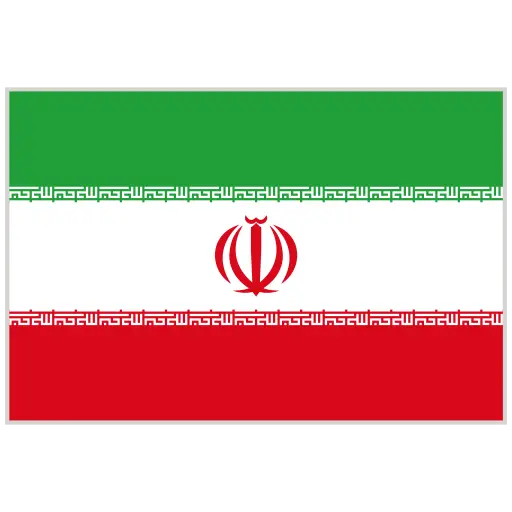- Masih Rezvani
- August 30, 2024
- Market
Comprehensive Analysis of the Petrochemical and Polymer Market and Pricing Strategies: Examining Turkey’s Role as a Global Hub and Success Strategies for Iranian Producers
Preface
Dr. Rezvani, a prominent name in the field of economics and consulting specializing in energy and polymer products, is well-known for his nearly a decade of experience in analyzing financial and industrial markets. With deep expertise in global and regional markets, Dr. Rezvani has focused on analyzing and providing practical solutions for success in the petrochemical and polymer markets. This article aims to provide a detailed and practical analysis of the pricing market for petrochemical and polymer products in Iran and Turkey, exploring trends, challenges, and opportunities within these markets.
Introduction
Turkey, with its strategic geographic position, is recognized as the “Gateway to Europe.” Due to its location on the Silk Road, the country acts as a bridge between Asia and Europe and has excellent access to major Eurasian producers. From China and Saudi Arabia to Azerbaijan, Iran, South Korea, Ukraine, Turkmenistan, Kazakhstan, and Russia, Turkey is recognized as a significant global hub for petrochemical and polymer products. This article offers a comprehensive analysis of the petrochemical and polymer market conditions in Iran and Turkey, production trends, and competitor pricing policies, and explores strategic solutions for success in these markets.
Turkey as a Global Hub for Petrochemical and Polymer Products
In recent years, Turkey has made significant progress in the polymer production industry. Through substantial investments, improvements in production technologies, and development of infrastructure, Turkey has dramatically increased its polymer production rates. By establishing and expanding production and distribution infrastructure, Turkey has become one of the main centers for petrochemical and polymer trade. This situation, especially given its geographic location and rapid access to major producer countries, has enabled Turkey to act as a competitive global hub.
Domestic Advances in Polymer Production in Turkey
Turkey has focused on enhancing its domestic polymer production by improving processes, increasing production capacity, and adopting modern technologies. The country has significantly raised its production rates through increased investments in research and development and process optimization. Additionally, Turkey has become a leader in the polymer industry by leveraging its advantages in raw material supply and access to global markets.
Pricing Policies and Competition in the Turkish Market
Competition in the Turkish polymer market is especially intense for foreign producers. Competitor pricing policies, raw material price fluctuations, and market demand changes are among the factors affecting producers’ competitiveness. To succeed in this market, producers must adopt precise and efficient pricing and production strategies. This includes detailed analysis of competitors, understanding market changes, and employing modern methods to increase productivity.
Competitor Pricing Policies
To compete effectively in the Turkish market, producers need to continuously update their pricing strategies. This includes reviewing production costs, improving product quality, and leveraging competitive advantages. Detailed analysis of competitors’ pricing policies and global changes can help producers develop effective competition strategies. Iranian producers must continuously adjust their strategies based on market conditions and global changes to compete effectively in this market.
Turkish Government Policies for Targeting the Polymer Market
The Turkish government has adopted targeted and comprehensive policies to effectively steer its petrochemical and polymer markets. These policies include financial incentives, reducing trade barriers, and improving production and export processes. By strengthening commercial and production infrastructure and offering financial incentives, Turkey has positioned itself as a competitive commercial center in the European and global markets. These measures have enabled Turkey to function as a primary global hub for polymer and petrochemical products.
Intense Competition in the Turkish Market and Strategies for Iranian Producers
Competition in the Turkish market is particularly fierce for Iranian producers. To gain a larger share of this market, Iranian producers need to continuously update their strategies and use modern marketing methods. This includes leveraging digital technologies, analyzing market data, and building strong relationships with business partners and customers.
Modern Marketing Methods in Turkey
Modern marketing plays a key role in increasing the share of foreign producers in the Turkish and European markets. Utilizing digital technologies, analyzing market data, and online advertising can help producers communicate more effectively with customers and increase their market share. Creating engaging and suitable content for online advertising, using social media, and exploiting e-commerce platforms can strengthen brand presence and boost sales.
Developing Marketing Strategies
Producers should enhance their branding and sales by employing modern marketing methods, including digital advertising, social media, and e-commerce platforms. Additionally, building strong relationships with business partners and customers in Turkey and Europe can help increase market share and strengthen competitive positioning. Iranian producers should develop effective strategies for penetrating the Turkish and European markets by analyzing market data and understanding customer needs.
Conclusion
To succeed in the competitive markets of Turkey and Europe, producers of polymer and petrochemical products must focus on detailed market analysis, effective pricing strategies, and modern marketing methods. By relying on these approaches and seizing market opportunities, producers can enhance their global and regional market share and establish themselves as key players in the petrochemical industry.
Author: Dr. Masih Rezvani
Economic Consultant and Specialist in Energy and Financial Market



